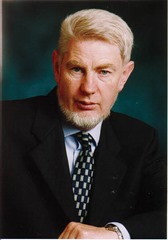Life after austerity
 David Begg sensed a major shift in European economic thinking and called for a fairer alternative as he addressed the ICTU biennial delegate conference.
David Begg sensed a major shift in European economic thinking and called for a fairer alternative as he addressed the ICTU biennial delegate conference.
The tide is turning against austerity and Ireland’s trade unions now have an opportunity to propose a better socio-economic model, ICTU General Secretary David Begg told delegates at Congress’ biennial delegate conference in Belfast.
In the 2008 crisis, the efficient market hypothesis was “shaken to the core” as self-correcting markets were “obviously not self-correcting”. However, two years later, Keynesian stimulus economics had been rejected in favour of German-style austerity.
“It has since proved to be a disastrous policy for Europe,” Begg contended. “The politics of debt have been turned into a morality play, one that has shifted the blame from the banks to the State.”
ICTU had warned in 2008 that deflationary policies would push Ireland into a “prolonged slump” similar to that experienced in Japan and would carry the risk of a lost generation of unemployed young people.
“We recognised the need to bring down the fiscal deficit but we wanted to do it over a longer timeframe – to 2017 – and to backload the adjustment so as to give growth a chance to do some heavy lifting,” he explained.
Five years on, he pointed to “irrefutable evidence that austerity is not working” with falls in GDP, personal expenditure and capital investment. That said, he was pleased to see a growing case for opposing austerity.
Continued high unemployment and an “uninvested cash pile” of €7 trillion across Europe constituted “evidence of a Keynesian liquidation trap if ever there was one.”
European Commission President José Manuel Barroso had now accepted that austerity had “reached the limits of political acceptability” and Dutch and Austrian politicians, traditionally allied to the Germans on austerity, were also expressing doubts.
The IMF had also admitted that it underestimated the multiplier effects of cuts on the real economy and that capital controls in some circumstances may be appropriate (as happened in Cyprus).
Europe was changing tack but its leadership, in his view, now faced the dilemma of increasing integration (through the banking union) at a time when the European public was hostile and cynical towards that project.
Begg strongly criticised the theory that the crisis was caused by excessive government spending. Average OECD debt was decreasing before the crisis began. Instead, the banks “promised growth, delivered losses, passed the cost on to the State, and then the State got the blame”.
Pointedly, he remarked: “It cost €64 billion to bail out the banks and our grandchildren will spend their lives trying to pay off that debt.”
Looking ahead, he welcomed the establishment of the Nevin Economic Research Institute, which was now frequently referenced in Dáil Éireann and in the media. The challenging task ahead was to formulate “a political economy of the common good” for Ireland. Swedish trade union economists Gosta Rehn and Rudolf Meidner were successful in creating the Nordic model in the 1950s.
History was also in the air as Begg recalled the 1913 Dublin lock-out: a defining moment in Irish labour history. To him, two lessons stood out: “One is to recognise that solidarity is the cement that binds us together. The other is that no crisis, however severe, lasts forever.”
Delegates elected John Douglas, General Secretary of Mandate, as ICTU President for 2013-2015. “The present crisis presents the trade union movement not only with challenges but with a great opportunity,” Douglas said. “We are still the biggest civil society organisation in Ireland. Our challenge is to build on our strengths, refine our structures and to mobilise with a unity of purpose.”
ICTU: a brief history
Irish trade unionists initially attended the British-based Trades Union Congress (TUC) but formed their own Irish Trade Union Congress in 1894. This body then established the Labour Party in 1912.
While the following year’s Dublin lock-out ended in defeat, it increased the prominence of the trade union movement and the Labour Party in Irish politics. The movement was unaffected by partition but formed a Northern Ireland committee in 1945 to represent the interests of members in the region.
Labour separated from Congress in 1930. The Congress of Irish Unions separated from the movement in 1945 and comprised unions with headquarters in Ireland.
After lengthy negotiations, the Congress of Irish Unions and Irish Trade Union Congress merged in 1959 to form the Irish Congress of Trade Unions. Congress currently consists of 55 affiliated unions.





